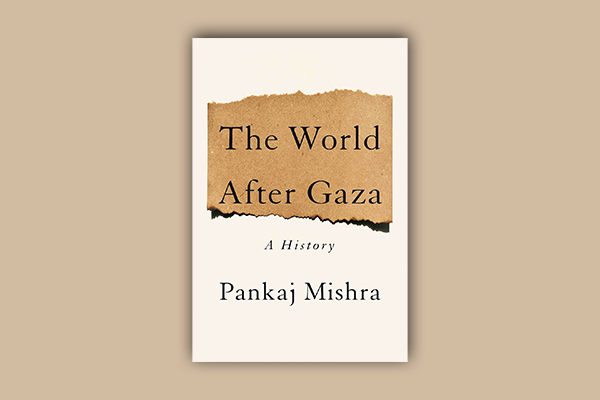PANKAJ MISHRA OPENS The World After Gaza: A History with the 1943 Warsaw ghetto uprising in German-occupied Poland. The Jews imprisoned in the ghetto fought their Nazi captors for “a few desperate weeks” until they were crushed. Mishra quotes one of few survivors, Marek Edelman, who “was ‘terribly afraid’ that ‘nobody in the world would notice a thing,’ and ‘nothing, no message about us, would ever make it out.’”
The Israel Defense Forces’ ongoing destruction of Gaza following the Oct. 7, 2023, attack on Israeli civilians by Hamas has been livestreamed by journalists, mothers, and teenagers. Globally, many suffered “an inner wound,” Mishra writes, from watching these cruelties: Israel’s bombs targeting children, schools, and hospitals; military dogs mauling disabled Palestinians; and IDF soldiers denying starving people access to food. Despite Palestinian efforts to broadcast the war crimes, Gaza still burns. Mishra contrasts reactions to the atrocities in 1943 Warsaw and in Gaza today to explore Western state-sanctioned violence.
Although Western Allies pledged never to let the genocide of the Holocaust happen again — a promise that has defined Western morality for decades — the violence unleashed in World War II death camps has been repeated across the globe in Japan, Vietnam, Rwanda, Iraq, Syria, and Gaza.
Mishra, a British Indian writer, links the rhetoric of Israel’s ethno-state to the Hindu nationalism of his native India. From a Hindu Brahmin family, Mishra recalls his childhood admiration of Israel’s leaders and how he, and many other Hindu nationalists, admired their macho tactics.
Read the Full Article

